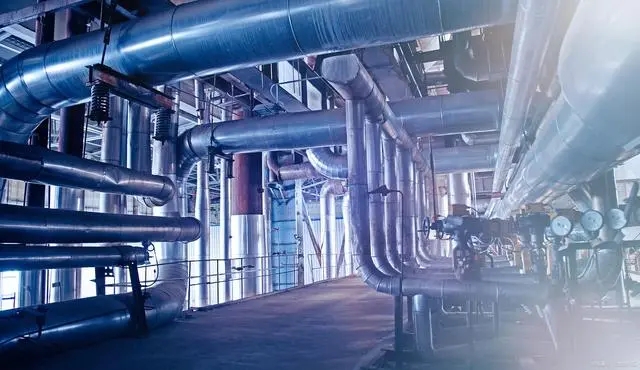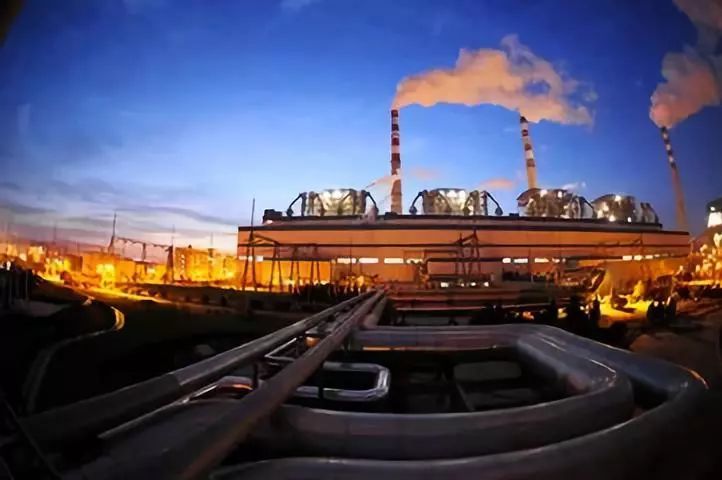
Location: 首页 > Applications > Heating industry
The heating industry refers to an industry that transmits heat energy to users through heating equipment. It provides people with a warm home environment in winter and is an important part of modern urban infrastructure. In this paper, the background, development status, technological innovation and future development trend of the heating industry will be elaborated.
It provides people with a warm home environment in winter and is an important part of modern urban infrastructure. In this paper, the background, development status, technological innovation and future development trend of the heating industry will be elaborated.
Background of heating industry. With the acceleration of the urbanization process, the population is increasing, and the energy consumption is also increasing year by year. At the same time, people's requirements for quality of life are getting higher and higher, and the requirements for indoor temperature are also increasing. Therefore, the development of the heating industry has become particularly important. The rise of the heating industry can be traced back to the 1950s, when most cities still used coal as the main fuel for heating, but the environmental pollution caused by coal combustion is increasingly serious. In order to improve environmental quality, the heating industry has carried out a series of technological innovations and reforms.
Development status of heating industry. At present, the heating industry has gradually shifted from traditional coal heating methods to clean energy heating, such as natural gas and ground source heat pumps. These clean energy sources not only reduce environmental pollution, but also improve heating efficiency. At the same time, heating enterprises are also constantly improving the quality of heating services, using advanced heating equipment and technology to improve the operating efficiency of heating systems and ensure that the heating needs of users are met. In addition, the heating industry is also committed to improving the intelligent level of the heating system, through the Internet, the Internet of things and other technical means to achieve remote monitoring and management of the heating system, improve the operating efficiency of heating equipment, reduce heating costs.
 Technological innovation in heating industry. With the development of science and technology, the heating industry is also constantly carrying out technological innovation. Traditional heating methods mainly rely on coal-fired boilers to generate heat energy, but coal-fired boilers have problems such as incomplete combustion and pollution emission. Therefore, the heating industry has introduced new heating technologies, such as gas boilers, electric boilers, ground source heat pumps and so on. These new technologies not only improve heating efficiency, but also reduce environmental pollution. In addition, the heating industry is also researching and developing new heating materials, such as efficient thermal conductivity materials, heat storage materials, etc., to improve the energy efficiency of heating systems.
Technological innovation in heating industry. With the development of science and technology, the heating industry is also constantly carrying out technological innovation. Traditional heating methods mainly rely on coal-fired boilers to generate heat energy, but coal-fired boilers have problems such as incomplete combustion and pollution emission. Therefore, the heating industry has introduced new heating technologies, such as gas boilers, electric boilers, ground source heat pumps and so on. These new technologies not only improve heating efficiency, but also reduce environmental pollution. In addition, the heating industry is also researching and developing new heating materials, such as efficient thermal conductivity materials, heat storage materials, etc., to improve the energy efficiency of heating systems.
The future development trend of heating industry. With the increasingly prominent energy and environmental problems, the heating industry will face more challenges and opportunities. In order to cope with climate change and the energy crisis, the heating industry will continue to promote the application of clean energy, such as solar energy and biomass energy. At the same time, the heating industry will also strengthen cooperation with other energy industries, such as cooperation with the power industry and the gas industry, to jointly promote the efficient use of energy. In addition, the heating industry will further improve the intelligent level of the heating system, and realize the automation and intelligent management of the heating system through artificial intelligence, big data and other technical means.
As an important part of modern urban infrastructure, the heating industry faces many challenges while ensuring people's quality of life. In the future, the heating industry will continue to promote the application of clean energy, strengthen technological innovation, and improve the energy efficiency and intelligence level of heating systems to meet the growing demand for heating and provide people with a more comfortable and environmentally friendly living environment.

 Jing12011202000600 Website construction: Fengsheng Technology
Jing12011202000600 Website construction: Fengsheng Technology
